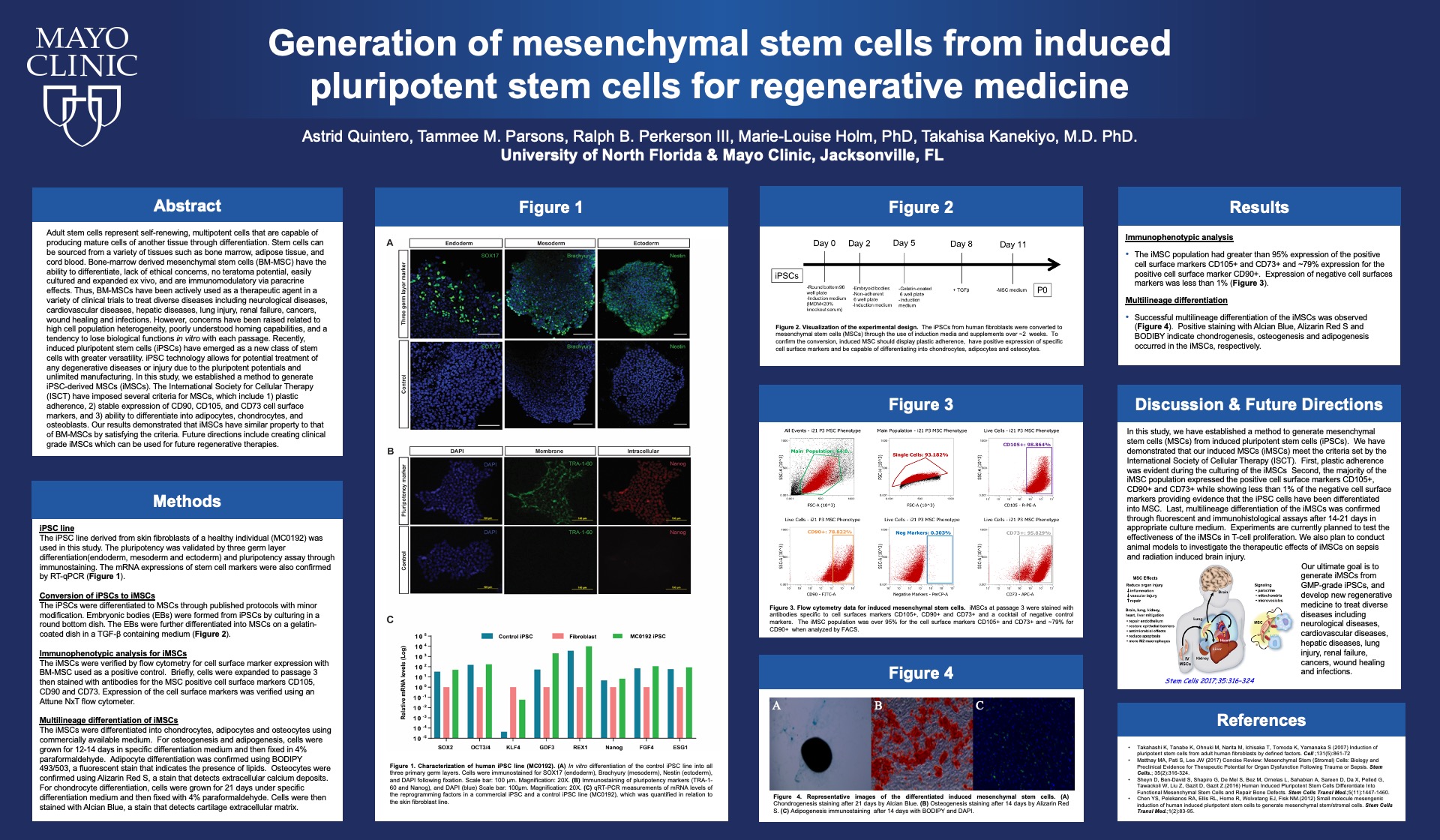Research Authorship:
Astrid Quintero, Tammee M. Parsons, Ralph B. Perkerson III, Marie-Louise Holm, Takahisa Kanekiyo
Faculty Mentor:
Dr. Judith D. Ochrietor | College of Arts and Sciences | Department of Biology
Abstract:
Adult stem cells represent self-renewing, multipotent cells that are capable of producing mature cells of another tissue through differentiation. Stem cells can be sourced from a variety of tissues such as bone marrow, adipose tissue, and cord blood. Bone-marrow derived mesenchymal stem cells (BM-MSC) have the ability to differentiate, lack of ethical concerns, no teratoma potential, easily cultured and expanded ex vivo, and are immunomodulatory via paracrine effects. Thus, BM-MSCs have been actively used as a therapeutic agent in a variety of clinical trials to treat diverse diseases including neurological diseases, cardiovascular diseases, hepatic diseases, lung injury, renal failure, cancers, wound healing and infections. However, concerns have been raised related to high cell population heterogeneity, poorly understood homing capabilities, and a tendency to lose biological functions in vitro with each passage. Recently, induced pluripotent stem cells (iPSCs) have emerged as a new class of stem cells with greater versatility. iPSC technology allows for potential treatment of any degenerative diseases or injury due to the pluripotent potentials and unlimited manufacturing. In this study, we established a method to generate iPSC-derived MSCs (iMSCs). The International Society for Cellular Therapy (ISCT) have imposed several criteria for MSCs, which include 1) plastic adherence, 2) stable expression of CD90, CD105, and CD73 cell surface markers, and 3) ability to differentiate into adipocytes, chondrocytes, and osteoblasts. Our results demonstrated that iMSCs have similar property to that of BM-MSCs by satisfying the criteria. Future directions include creating clinical grade iMSCs which can be used for future regenerative therapies.


